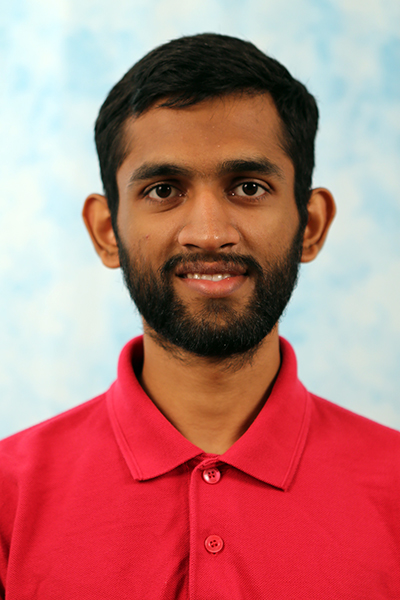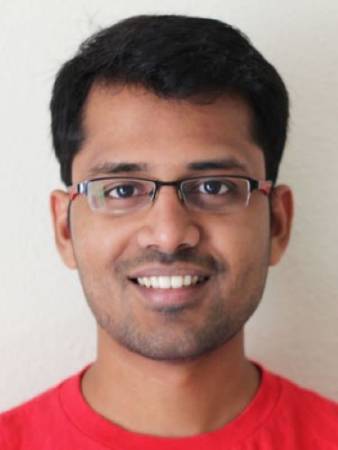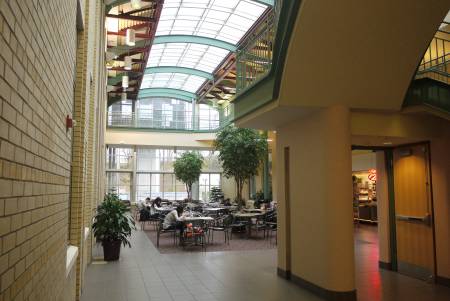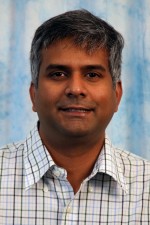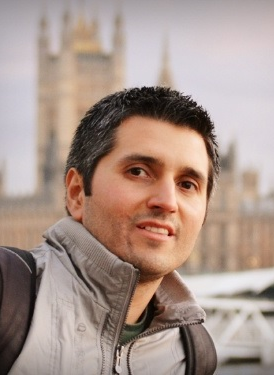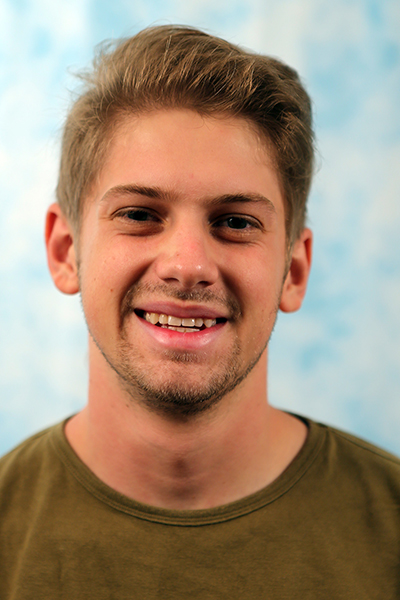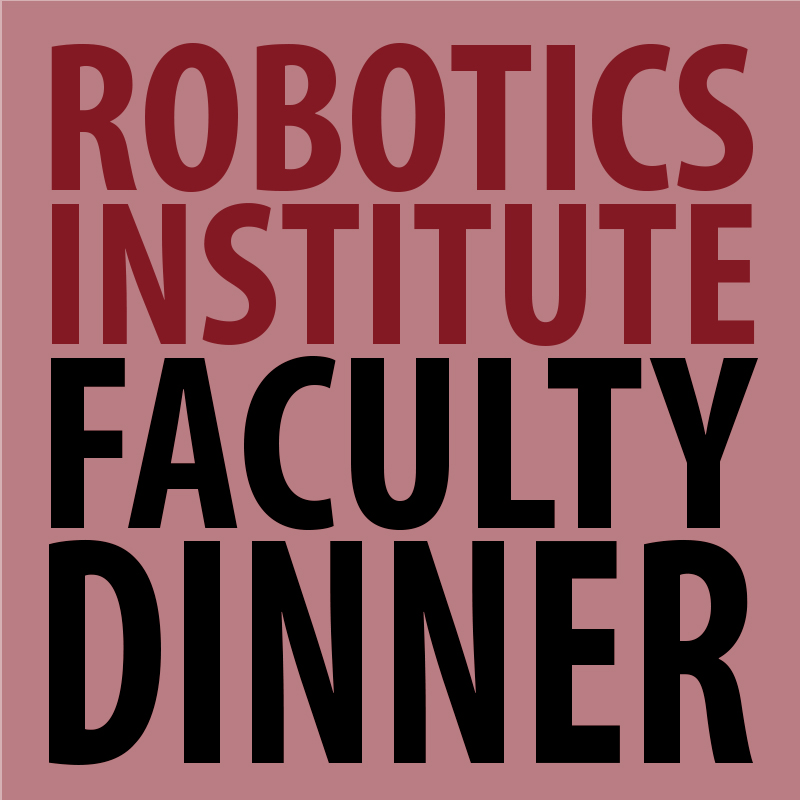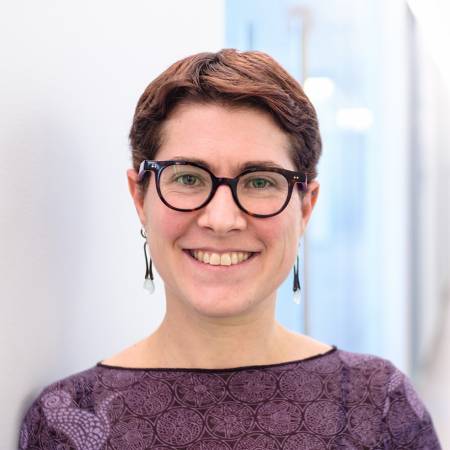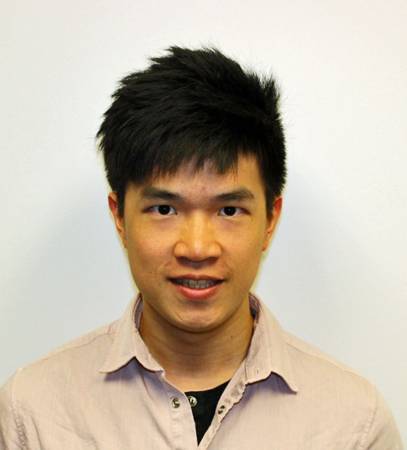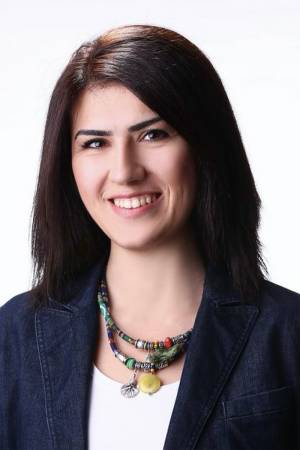Carnegie Mellon University
MSR Thesis talk – Vasu Agrawal
Title: Ground Up Design of a Multi-modal Object Localization System Abstract: Rapid situational awareness is the key to enabling a successful response from first responders during an emergency, where time is of the essence. Emergency personnel are often sent into incident scenes to gather information, but this is often a dangerous and slow process. Subterranean environments [...]
MSR Thesis Talk – Swaminathan Gurumurthy
Title: Improving generalization in data-driven models with task-specific knowledge Abstract: With the rise of the over-parameterized deep learning models and massive datasets, many have started advocating towards minimizing the amount of prior knowledge added to a learning model. Ironically, the traditional machine learning community advocated for exactly the opposite. Whereas the latter assumes knowledge of [...]
RI Winter Party
Robotics Institute Winter Party Please join us for some fun, food, beverages and conversation! All RI faculty, staff, students and visitors are invited to the Robotics Institute Winter Party! We apologize but due to space limitations in the Atrium we regretfully cannot include family or other non-RI guests.
Imaging without focusing: A computational approach to miniaturizing cameras
Abstract: Miniaturization of cameras is key to enabling new applications in areas such as connected devices, wearables, implantable medical devices, in vivo microscopy, and micro-robotics. Recently, lenses were identified as the main bottleneck in miniaturization of cameras. Standard smaller lens-system camera modules have a thickness of about 10 mm or higher, and reducing the size [...]
MRSD Annual Poster Presentation
Nine RI MRSD program student teams will use posters, videos, and hardware to show their project work on truck crash avoidance, balance recovery, construction via UAVs, room tidying, crop disease detection, beach cleaning, temperature field sensing, UGV-UAV firefighting, and multirover moon pit modeling. Website: https://mrsd.ri.cmu.edu/project-examples/student-project-websites/spring-2019-fall-2019/
Adaptive Planning and Control of Wheeled Mobile Robots in Challenging Environments
Abstract: Over the last two decades, we have seen driverless cars conquer the Mojave desert, drive on mars and operate on our streets and warehouses. One of the most fundamental requirements of such robots is their ability to navigate their environment with minimal human oversight. As more robots graduate from the confines of laboratories to [...]
Towards photo-realistic face digitization from monocular videos
Abstract: Recent advances in face capture now enable digitizing high-quality 3D faces for the entertainment industry. Standardized digitization solutions, however, require tailor-made capture systems and extensive manual work, making them expensive and hard to deploy. With the advent of commodity sensors, new lightweight approaches that push the boundaries of human digitization have been introduced, slowly [...]
When to use CNNs for Inverse Problems in Vision
Abstract: Reconstruction tasks in computer vision aim fundamentally to recover an undetermined signal from a set of noisy measurements. Examples include super-resolution, image denoising, and non-rigid structure from motion\cite{Kong_2019}, all of which have seen recent advancements through deep learning. However, earlier work made extensive use of sparse signal reconstruction frameworks (e.g. convolutional sparse coding). While [...]
Toward telelocomotion: human sensorimotor control of contact-rich robot dynamics
Abstract: Human interaction with the physical world is increasingly mediated by automation -- planes assist pilots, cars assist drivers, and robots assist surgeons. Such semi-autonomous machines will eventually pervade our world, doing dull and dirty work, assisting the elderly and disabled, and responding to disasters. Recent results (e.g. from the DARPA Robotics Challenge) demonstrate that, [...]
2020 RI Faculty Dinner
Invitation with information will be emailed to invitees.
Formal Synthesis for Robots
Abstract: In this talk I will describe how formal methods such as synthesis – automatically creating a system from a formal specification – can be leveraged to design robots, explain and provide guarantees for their behavior, and even identify skills they might be missing. I will discuss the benefits and challenges of synthesis techniques and [...]
Reconstructing 3D Human Avatars from Monocular Images
Abstract: Statistical 3D human body models have helped us to better understand human shape and motion and already enabled exciting new applications. However, if we want to learn detailed, personalized, and clothed models of human shape, motion, and dynamics, we require new approaches that learn from ubiquitous data such as plain RGB-images and video. I [...]
Carnegie Mellon University
Learning Dense 3D Object Reconstruction without Geometric Supervision
Abstract: Geometric alignment across visual data has been the fundamental issue for effective and efficient computer vision algorithms. The established pixel correspondences between images indirectly infer the underlying 3D geometry, physically or semantically. While this builds the foundation of classical multi-view 3D reconstruction algorithms such as Structure from Motion (SfM) and Simultaneous Localization and Mapping [...]
Extreme Motions in Biological and Engineered Systems
Abstract: Dr. Temel’s work mainly focuses on understanding the dynamics and energetics of extreme motions in small-scale natural and synthetic systems. Small-scale biological systems achieve extraordinary accelerations, speeds, and forces that can be repeated with minimal costs throughout the life of the organism. Zeynep uses analytical and computational models as well as physical prototypes to learn about these systems, test [...]
